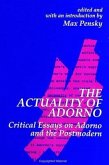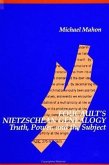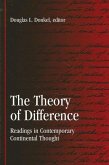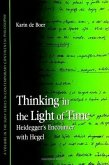Andrew Cutrofello demonstrates that in light of Michel Foucault's genealogical criticisms of the juridical model of power, it is possible to develop a postjuridical model of Kantian critique. Recasting game theory's celebrated "prisoner's dilemma" in Foucauldian terms, Cutrofello illuminates the techniques of mutual betrayal that train bodies to reason themselves into complicity with forces of subjugation. He shows how a genealogically reformulated version of Kantian ethics can provide the basic parameters of a "discipline of resistance" to such forces, and he argues for a more nuanced assessment of the stakes involved in the demise of philosophy as a disciplinary formation. Along the way, Cutrofello presents fascinating readings of Kant's own "care of the self" ethic, drawing on the conceptual resources of Gilles Deleuze, Jacques Lacan, and Luce Irigaray. This tour-de-force will prompt social theorists to reconsider the way power functions in our modern/postmodern world.








